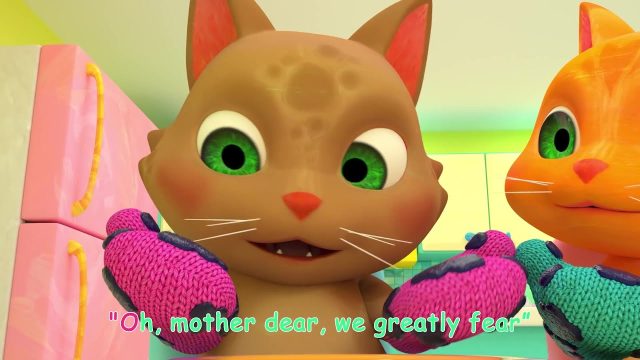This Week, You Will Be Beset With:
- zombie-fied kids
- hornt-up moviegoers
- self-conscious writers
- shut-out celebs
- cats!
But what is good for you is seeing submissions this week from Rosy Fingers and Miller. Send articles throughout the next week to ploughmanplods [at] gmail, post articles from the past week below for discussion, and Have a Happy Friday!
Meghan Boilard goes deep into the kids programming phenomenon Cocomelon and what inspires the vitriol levelled at it:
Time and time again, Cocomelon has been described as “cocaine for toddlers” in concerned parental anecdotes and TikTok jests alike. One word continues to reappear in ongoing conversation debating the merits and faults of Coco: addiction. And while this word is often wrapped around the protective coverage of half-jokes, as a childless woman who rarely spends extended periods with people under the age of 25, the consistent use of such a loaded word is…startling. At this point, there’s no doubt in my mind that huge swaths of the population are concerned about what Cocomelon may be doing to kids. Shrouds of sing-song and marimba cannot sufficiently hide the fact that something about this program is so deeply disturbing that it triggers instincts in us formed long before we became human. It is danger that mothers and fathers feel compelled to shield from the eyes of their offspring, the successors of their bloodlines.
Michael Gonzales muses on his own erotic experience with Solute-approved thriller Sea of Love at Crimereads:
Once inside the darkened theatre, that fear didn’t stop me and Vanessa from acting like horny teenagers and making out wildly throughout most of the film. For me, a guy who usually took his movie watching seriously, that was a first. Between kisses I glanced at the giant screen and, much like Pacino’s cop character, worried that someone might try to blow my head off. Had Vanessa’s drug dealing boyfriend followed her? Was he too sitting in the dark staring at us instead of the screen?
At The Point, James Duesterberg considers Natasha Stagg’s latest collection and the state of fiction in general:
Millennial autofiction is still being published: Lauren Oyler, Patricia Lockwood, Sally Rooney and Ben Lerner have all moved their kunstlerroman narratives into the age of social media. But something has happened to the tone of these books, and thus to the narrators: still self-conscious, the writing has lost its ironic edge and acquired the bland, studious distance of celebrity endorsements and propaganda. This is, above all, the writing of someone who is being watched: someone who knows exactly what they are sending out, and who is receiving it. The fantasy of artistic autonomy is no longer even conceivable to these narrators—has become “obsolete.” And without it, the drama of the autofictional voice, its tension between irony and complicity, loses narrative purchase. In a world already saturated with text, a world in which language’s illusive power seems to function all by itself, the artist-narrator becomes, simply, a conduit of the discourse.
There is a game of American football being played in Las Vegas, Nevada this weekend. The city’s luminaries are lining up, but Carrot Top can’t get tickets:
“That’s what everyone says: ‘You’re Carrot Top! You own this town!’” Mr. Thompson said. “But I really can’t get one.” […] Wayne Newton, the 81-year-old entertainer known as Mr. Las Vegas, recalled the old days, back when a phony businessman struggled to lure patrons out of the casinos to a horse-racing track. (It closed in 1954 shortly after opening.) On Monday, a pair of showgirls escorted Mr. Newton to a dais for a news conference so that he could christen a week full of Super Bowl-related festivities. Given the city’s history, he never imagined that it would one day host the game, he said. “Las Vegas was pretty set in its ways,” said Mr. Newton, who, unlike Carrot Top, knows exactly what his plans are for the weekend. “I think I have some pretty good tickets.”
And finally, The Reveal‘s Keith Phipps talks about the bad rap on cats in movies:
In some respects, cats have no one but themselves to blame. Turn a camera on a well-trained dog and you’re likely to get the result you want. Turn a camera on a cat and most of the time you get whatever the cat wants to give you. Dogs crave attention and want to please. Cats don’t care. That’s why it’s easy to rattle off the names of famous dog actors (Benji! Lassie! Rin Tin Tin! Uggie! Hot newcomer Snoop!) but name a single movie cat. Go on. Just one. […] Cats aren’t natural performers but they can be fascinating subjects when allowed to be themselves. That’s why some of the most successful scenes with cats in movies have been unscripted. The cat Don Corleone pets in the opening scene of The Godfather was a stray Francis Ford Coppola found wandering around the Paramount lot and handed to Marlon Brando shortly before shooting began. Its loud, satisfied purring made it necessary to re-record some of Brando’s dialogue. But it also made the scene, complicating our first image of the powerful mobster by displaying his softer side.

